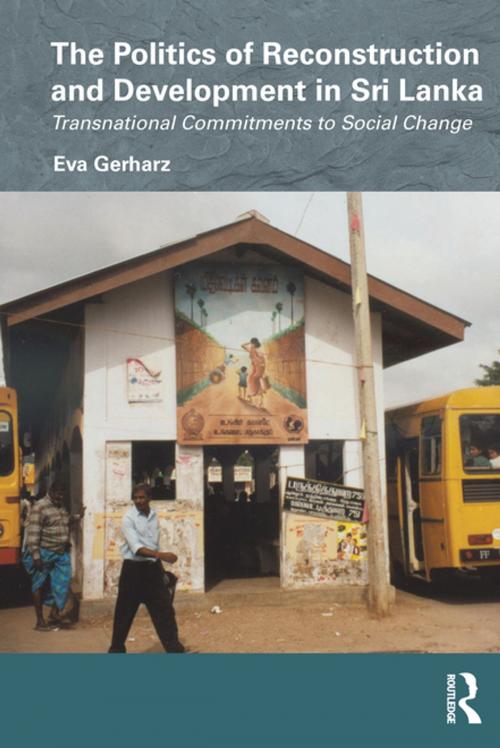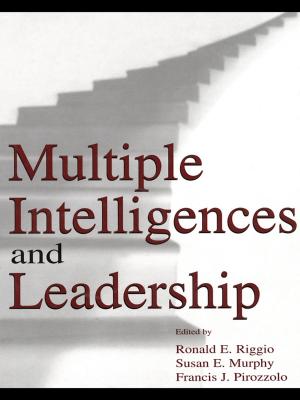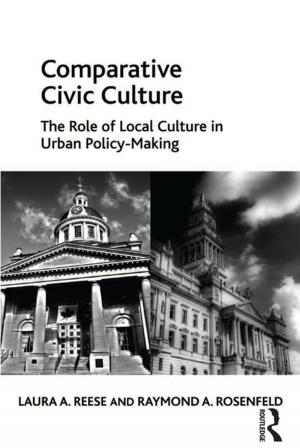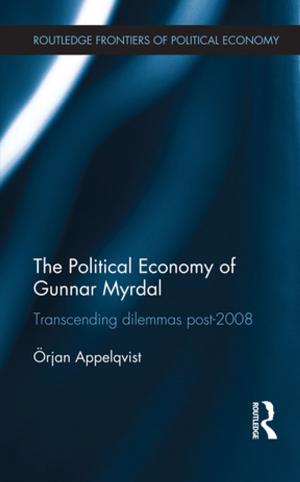The Politics of Reconstruction and Development in Sri Lanka
Transnational Commitments to Social Change
Nonfiction, Social & Cultural Studies, Social Science, Cultural Studies, Ethnic Studies, Political Science| Author: | Eva Gerharz | ISBN: | 9781317692799 |
| Publisher: | Taylor and Francis | Publication: | April 3, 2014 |
| Imprint: | Routledge | Language: | English |
| Author: | Eva Gerharz |
| ISBN: | 9781317692799 |
| Publisher: | Taylor and Francis |
| Publication: | April 3, 2014 |
| Imprint: | Routledge |
| Language: | English |
Sri Lanka’s conflict and peace processes have gained global attention during recent years. This book presents a comprehensive insight into the politics of reconstruction and development in Sri Lanka, focussing on the ceasefire which was negotiated between the Government of Sri Lanka and the separatist Liberation Tigers of Tamil Eelam in 2002 and which lasted until 2006.
Based on extensive empirical fieldwork, the book provides a unique ethnographic account of this specific historical period of peace. It explains how development was shaped by interplay and cooperation, but also by the disparities and conflicts between a variety of local and intervening actors, including local organizations and civil society, LTTE, Government of Sri Lanka, international development cooperation and the Tamil diaspora. Starting from an interdisciplinary viewpoint, the author integrates findings from development sociology with new perspectives on transnationalization and the migration-development-nexus. This provides a fine grained analysis of the emerging development visions and perspectives in relation to transnationalization and global interconnectedness.
Making an innovative contribution by linking the analysis of local reconstruction with contemporary phenomena of transnationalization, diasporization, and globalization, this book will appeal to those with an interest in Sociology, Social Anthropology and Political Science.
Sri Lanka’s conflict and peace processes have gained global attention during recent years. This book presents a comprehensive insight into the politics of reconstruction and development in Sri Lanka, focussing on the ceasefire which was negotiated between the Government of Sri Lanka and the separatist Liberation Tigers of Tamil Eelam in 2002 and which lasted until 2006.
Based on extensive empirical fieldwork, the book provides a unique ethnographic account of this specific historical period of peace. It explains how development was shaped by interplay and cooperation, but also by the disparities and conflicts between a variety of local and intervening actors, including local organizations and civil society, LTTE, Government of Sri Lanka, international development cooperation and the Tamil diaspora. Starting from an interdisciplinary viewpoint, the author integrates findings from development sociology with new perspectives on transnationalization and the migration-development-nexus. This provides a fine grained analysis of the emerging development visions and perspectives in relation to transnationalization and global interconnectedness.
Making an innovative contribution by linking the analysis of local reconstruction with contemporary phenomena of transnationalization, diasporization, and globalization, this book will appeal to those with an interest in Sociology, Social Anthropology and Political Science.















